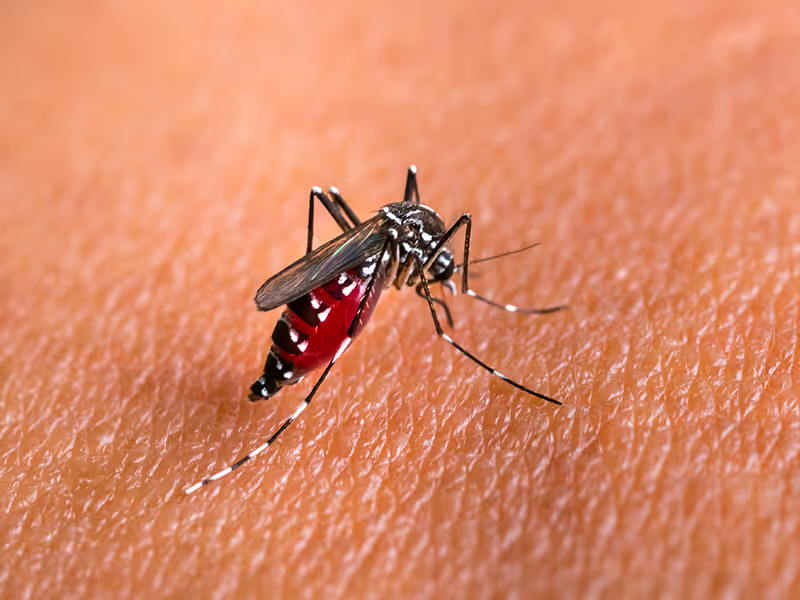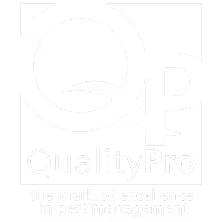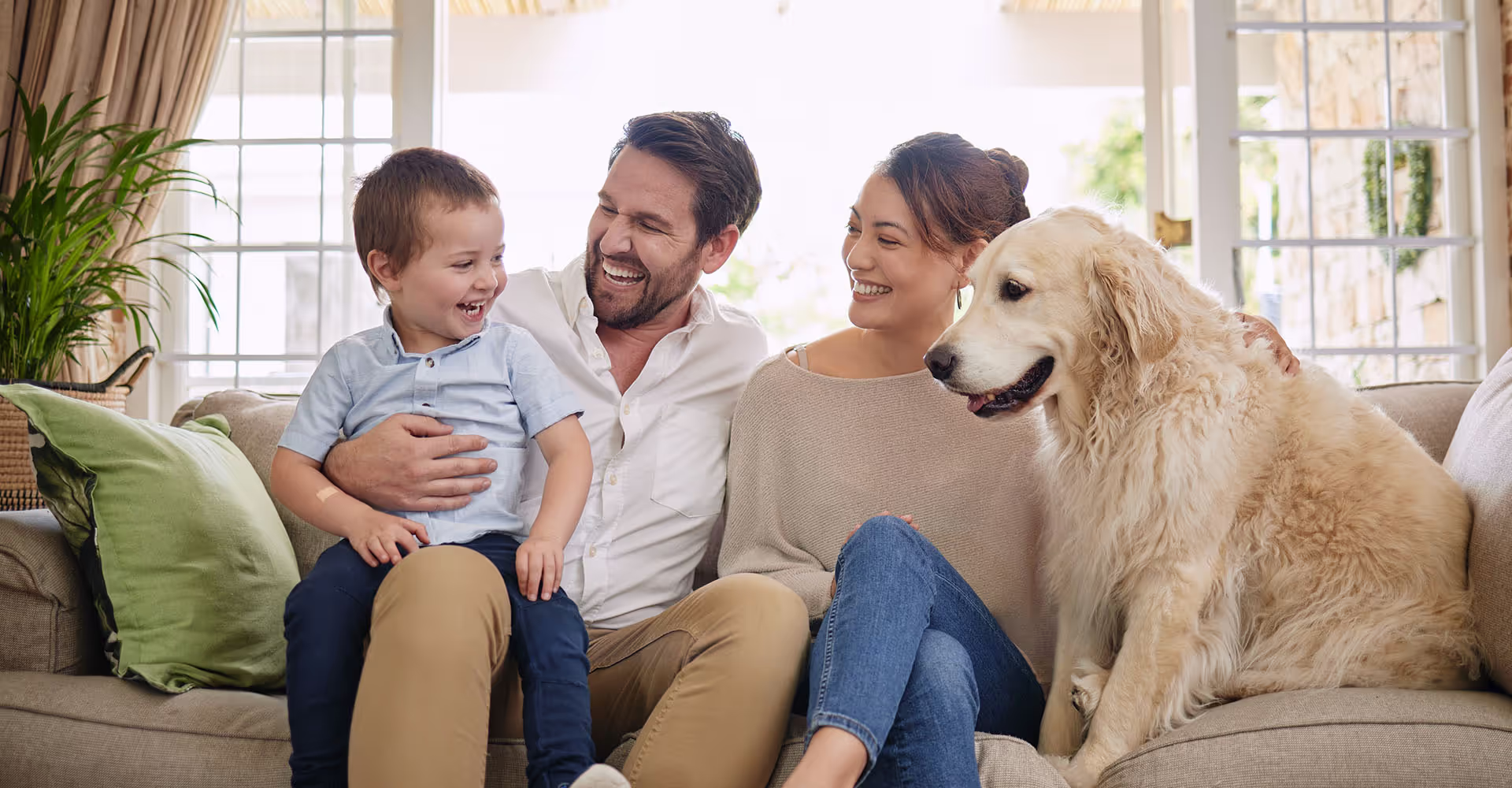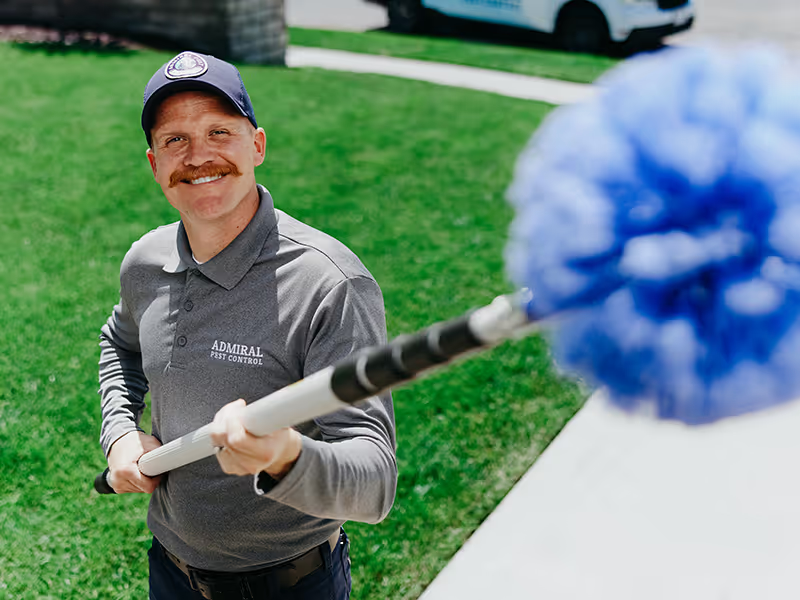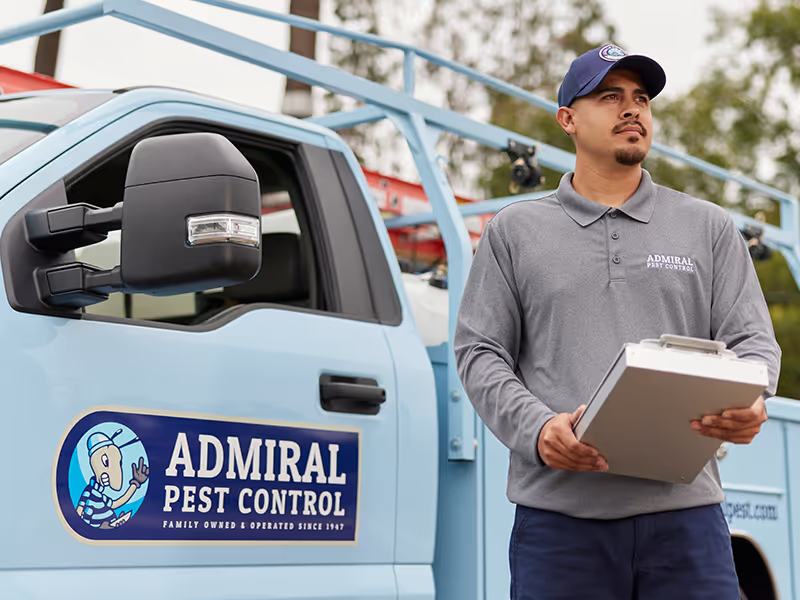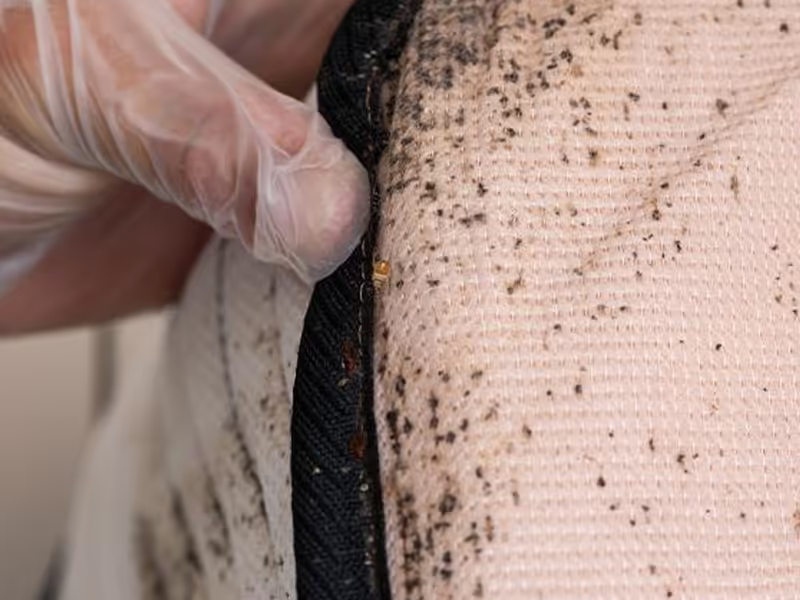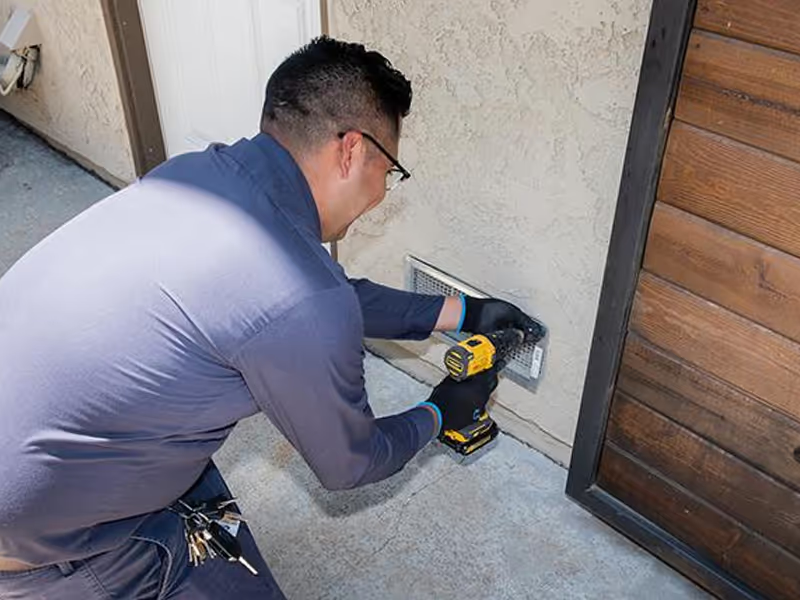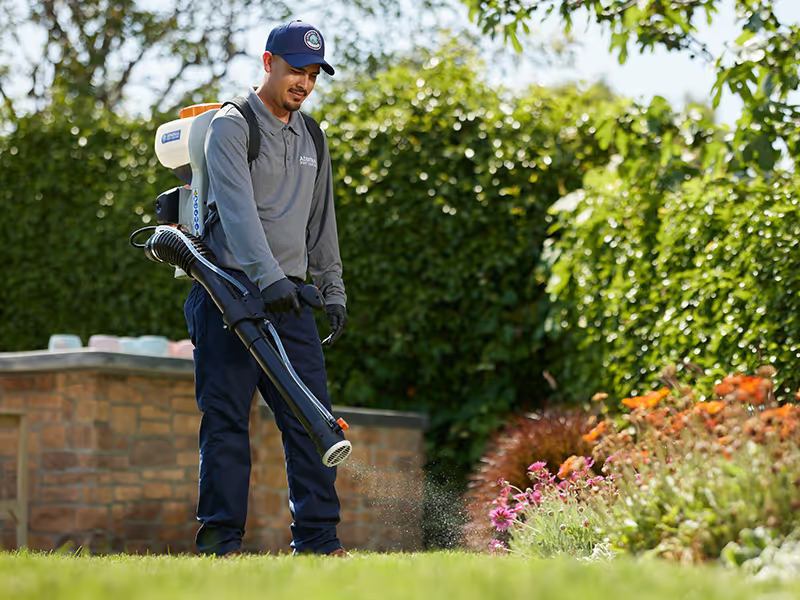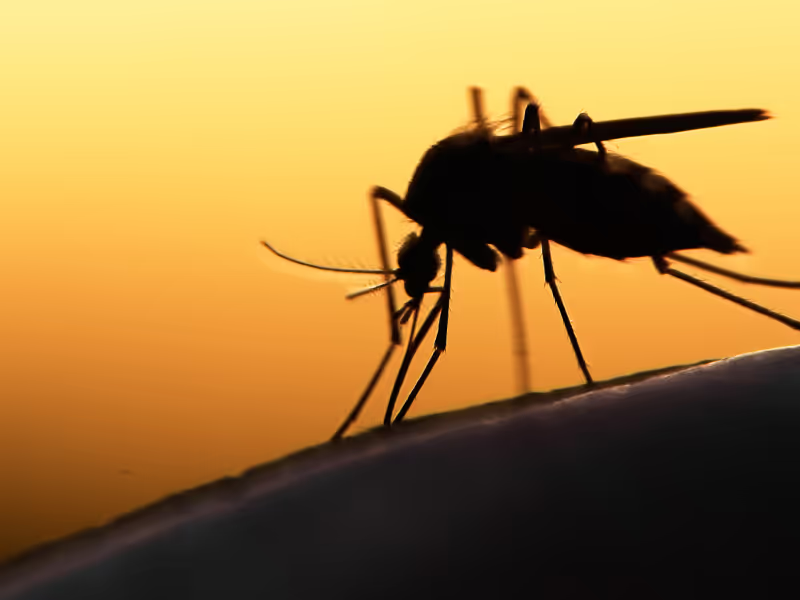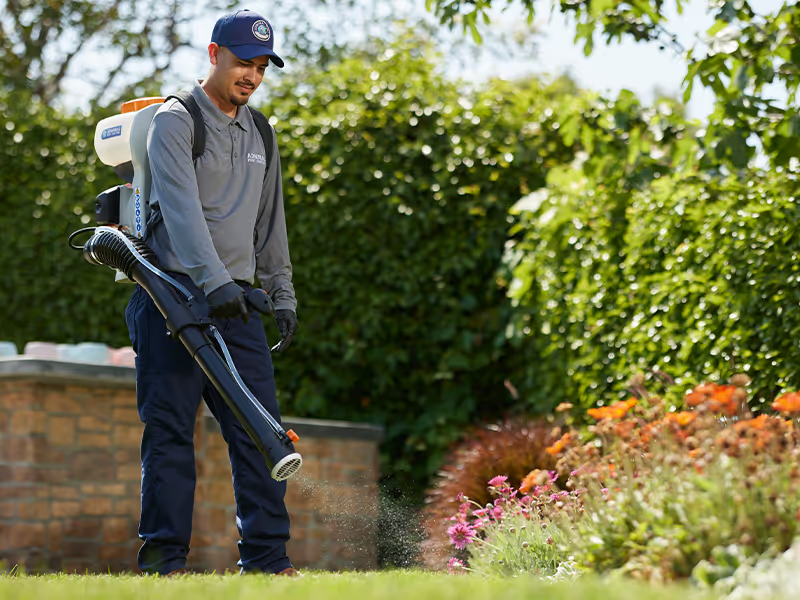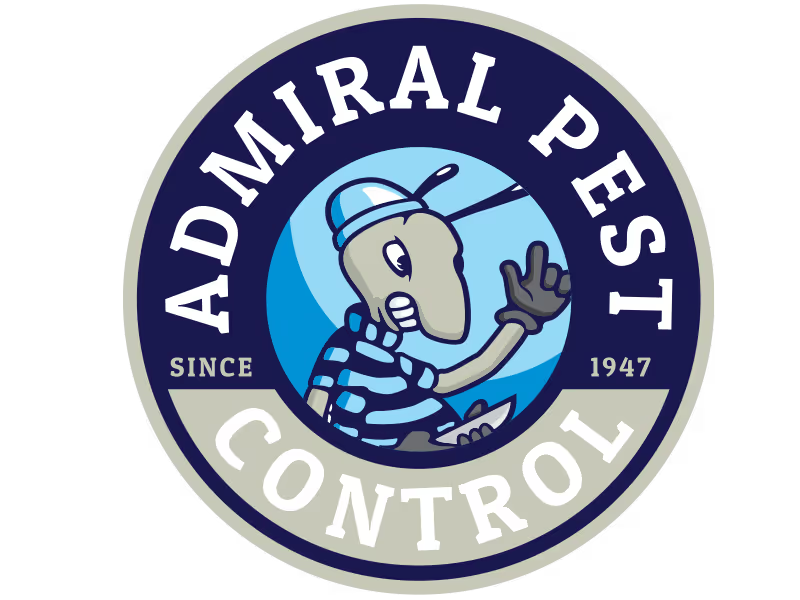This analysis not only provides detailed cost comparisons and effectiveness reviews but also considers the environmental impact, ease of implementation, and specific needs such as treating breeding areas using larvicides or covering large properties with fogging systems. Admiral Pest Control, a trusted family-owned service provider since 1947, has long understood these complexities. By comparing the benefits and drawbacks of each method, this guide empowers you to make an informed decision that best fits your circumstances. As we explore each dimension—from organizational expertise to hidden long-term costs—remember that pest management is not a one-size-fits-all solution. Instead, successful mosquito control involves a nuanced approach considering immediate and future risks. Let us now review the key aspects of professional versus DIY mosquito control through a detailed breakdown of their processes, costs, results, benefits, and drawbacks.
What Are the Key Differences Between Professional Mosquito Control and DIY Solutions?
The key differences between professional mosquito control and DIY solutions begin with the level of expertise applied and the range of technologies available. Professionals employ species-specific insecticides, precise larvicides, and modern equipment like thermal foggers combined with integrated pest management (IPM) strategies that consider local ecology. In contrast, DIY approaches often rely on over-the-counter insecticides, mosquito traps, citronella candles, and other consumer-grade products that are usually less potent and require repeated applications.
How Do Professional Mosquito Control Services Work?
Professional mosquito control services follow a multi-step process that begins with an on-site assessment of the property. Experts identify the breeding sites—such as standing water in containers, clogged gutters, or poorly drained areas—that serve as mosquito habitats. They then design a treatment plan that combines pre-treatment strategies with periodic follow-up visits to ensure residual control. Techniques include aerial spraying, fogging, and the use of larvicides in breeding areas.
These services operate under strict environmental and safety regulations and often utilize biological pest control products that minimize impacts on non-target species. For instance, technicians may use insect growth regulators that impede mosquito reproduction without harming beneficial insects. The overall approach is data-driven, with treatments scheduled based on seasonal weather patterns and mosquito population monitoring. In addition, professional companies offer warranties or guarantee additional treatments if their methods do not yield the expected reduction, ensuring long-term efficacy. This method minimizes health risks and is particularly effective for larger properties and commercial locations where the mosquito threat poses broader community concerns.
What DIY Mosquito Control Methods Are Commonly Used?
DIY mosquito control methods usually include a variety of products readily available to consumers. Common methods include the use of aerosol sprays, plug-in repellents, and outdoor foggers. Homeowners might also apply larvicides to stagnant water and install mosquito traps to physically capture flying insects. Additionally, natural solutions such as planting citronella, using essential oil diffusers, or installing fans to disrupt mosquito flight patterns are popular, though often less effective in high-infestation scenarios.
Despite their convenience and lower initial costs, DIY solutions may require frequent re-application and might not provide the broad coverage or residual effects necessary for complete mosquito elimination. These methods also demand a good deal of personal involvement and consistent maintenance, which not every homeowner can sustainably manage. Moreover, a lack of professional insight might lead to overuse or improper application of chemicals, potentially creating resistance in mosquito populations or inadvertently harming beneficial species.
How Does Expertise Impact Mosquito Control Effectiveness?
Expertise dramatically enhances the effectiveness of mosquito control efforts. Professional technicians are trained to identify the specific mosquitoes species prevalent in an area and select appropriate control measures. Their experience helps adjust strategies based on environmental conditions and seasonal variations, ensuring that treatment is both targeted and timely. Advanced training enables professionals to use diagnostic tools and surveillance data to predict outbreaks and tailor their interventions more precisely than a typical homeowner.
In contrast, a DIY approach may miss critical factors, such as subtle breeding sites or resistant mosquito strains, leading to ineffective outcomes. Expertise ensures that the integrated methods used by professionals not only reduce mosquito populations immediately but also help in preventing re-infestation over time. This precision and efficiency help achieve a level of control that DIY methods usually find hard to replicate, particularly in large or complex environments where mosquito breeding sites are scattered.
How Does the Cost of Professional Mosquito Control Compare to DIY Methods?
When comparing costs, professional mosquito control services may seem more expensive initially. However, a comprehensive view of both methods reveals significant differences in long-term value and effectiveness. Professional treatments typically involve a fixed fee based on property size, the severity of infestation, and required service frequency. These fees cover the expertise, equipment, chemicals, and follow-up treatments necessary to achieve lasting results. While DIY costs might appear lower—primarily involving the purchase of sprays, foggers, and traps—the cumulative expense over the course of an entire mosquito season can be comparable, if not higher, especially when considering repeated purchases, replacement batteries, and wastage due to ineffective products.
What Are the Typical Costs of Professional Mosquito Control Services?
Professional mosquito control usually costs between $150 to $500 per treatment, with many companies offering seasonal packages that range from $400 to $1,500 for the entire season. These fees vary based on factors such as the area covered, complexity of the infestation, and additional services like debris removal or habitat modification. Additionally, professional services come with follow-up visits and sometimes money-back guarantees, which add to the overall value. Because these treatments are done by experts using professional-grade equipment and chemicals not available to the public, the results tend to be more comprehensive and longer lasting, which can reduce the overall expense associated with recurrent infestations.
PRO TIP: Check Out our Monthly Service Plans starting at only $39/mo
For DIY enthusiasts, the upfront cost of mosquito control products is generally lower; for example, outdoor insecticides may cost anywhere from $15 to $50 per can, and mosquito traps or bait stations typically range from $30 to $100 each. However, the requirement for regular reapplications—in some cases weekly—means that these expenses add up quickly over a mosquito season. Moreover, the cost of ancillary items, such as citronella candles, fan-operated bug zappers, or even professional-grade larvicides purchased online, can increase the overall expenditure. When all these costs are accumulated over several months, coupled with the potential need to purchase multiple types of products to cover diverse infestation challenges, the DIY approach’s total investment may rival or even exceed that of professional services.
Are There Hidden or Long-Term Costs in DIY vs Professional Approaches?
Yes, the hidden and long-term costs often favor professional mosquito control over DIY methods. DIY solutions might require high time investment, frequent purchases, and constant monitoring, leading to additional effort and sometimes the need for professional intervention if initial measures fail. In contrast, professional solutions reduce the long-term costs associated with re-infestation, potential property damage, health risks from mosquito-borne diseases, and wasted resources from ineffective DIY efforts. The long-term benefits of hiring professionals include fewer applications per season and a more strategic approach to mosquito prevention, thereby reducing the frequency and overall impact of infestations. When calculating the complete cost over time, professional services often present a more cost-effective solution.
How Effective Is Professional Mosquito Control Compared to DIY Techniques?
Effectiveness in mosquito control is measured by how significantly and consistently the chosen method reduces mosquito populations. Professional mosquito control services generally provide a higher level of effectiveness because of their targeted approach and use of advanced techniques. They often achieve reductions in mosquito populations by 70% to 90% within a single treatment cycle. This efficiency is due to the use of precise application methods, high-quality insecticides and larvicides, and periodic follow-up treatments that ensure that any resurgence is managed promptly.
What Results Can Customers Expect From Professional Treatments?
Customers utilizing professional treatments can expect rapid reduction in mosquito populations, typically over 70 to 90 percent reduction after the initial application. Results are often noticeable within days, and when treatments are repeated over the season, the effect is prolonged significantly. Environmental monitoring, comprehensive assessments, and data-driven approaches allow professionals to minimize the risks of re-infestation. Also, in high-risk situations such as in areas with high humidity and abundant standing water, professional strategies tend to include both treatment and prevention measures. The integrated services provided often yield significant improvements in quality of life and reduction in health risks associated with mosquito-borne illnesses.
How Reliable Are DIY Mosquito Control Solutions?
DIY mosquito control solutions may provide temporary relief, but their reliability varies greatly with proper application and maintenance. Homemade sprays, traps, and repellent devices can reduce mosquito numbers modestly if applied correctly; however, inconsistent use or neglect often results in fluctuating mosquito populations. Lack of targeted application means that many breeding sites remain untreated, leading to sporadic and short-lived results. The reliability of DIY methods largely depends on the user’s vigilance and ability to identify and treat all potential breeding areas, as well as their knowledge of when and how to reapply the products for continuous control. In contrast, professionals have systematic protocols to follow, resulting in more consistent mosquito control outcomes.
What Environmental and Safety Factors Affect Effectiveness?
Environmental factors play a critical role in the performance of both professional and DIY methods. Weather conditions such as rainfall, temperature, and wind can degrade the residual effect of insecticides, making timing critical. Professional services account for these variables by using formulations designed to adhere to surfaces or by scheduling reapplications at optimal intervals. Safety is another major factor: professional treatments use products that balance effectiveness with low toxicity for non-target species, including pets and humans, and employ protective measures during application. DIY users may inadvertently expose themselves and family members to higher concentrations of chemicals if not using proper protective equipment, leading to potential health hazards. Moreover, environmental regulations governing pesticide use ensure that professional applications are both effective and safe.
What Are the Benefits and Drawbacks of Professional Mosquito Control Services?
Professional mosquito control services bring a range of benefits, including high efficacy, precision, and safety—the latter being particularly important when the welfare of families and pets is at stake. The techniques implemented by professionals not only reduce the immediate mosquito population but also incorporate preventive measures to reduce re-infestation. For property owners, the familiarity with industry standards and adherence to local regulatory requirements means that the treatments are both environmentally friendly and safe.
How Do Professional Services Ensure Safety for Families and Pets?
One of the primary benefits of professional mosquito control is the stringent safety protocols that protect both residents and their pets. Licensed technicians use products that are registered with environmental agencies and are designed to minimize exposure risks to non-target organisms. They adhere to usage guidelines for insecticides and apply them in a controlled manner that maximizes efficacy while reducing the potential for harmful residues. Additionally, professionals often conduct pre-treatment assessments to identify sensitive areas such as vegetable gardens or play areas for children, and they employ methods such as spot treatment to minimize collateral effects. These procedures, coupled with proper personal protective equipment (PPE) for technicians, significantly mitigate the risks that might otherwise arise from chemical exposure in a DIY scenario.
What Convenience Factors Do Professional Services Offer?
Professional services provide substantial convenience over DIY methods by handling all aspects of treatment from evaluation to application, follow-up, and warranty services. For busy homeowners and business owners, this convenience translates into time saved as they do not need to research or purchase multiple products and then invest time in ongoing treatment. Appointment scheduling and systematic service plans mean that treatments are performed regularly and at appropriate intervals, ensuring continuity. Moreover, professionals are equipped to tackle large properties and complex landscapes that a DIY solution might not fully cover. All these factors contribute to a reduced burden on property owners while ensuring consistent and reliable mosquito control.
Are There Any Limitations or Risks With Professional Mosquito Control?
Despite the high overall effectiveness, professional mosquito control may have limitations or risks. One potential drawback is the upfront cost, which can be higher compared to quick DIY fixes. However, this cost is often offset by the long-term benefits and reduced need for repetitive applications. Some residents may also have concerns about the chemicals used, but reputable companies rigorously adhere to safety standards and environmental regulations. There is also the risk of temporary displacement of non-target organisms; however, integrated pest management (IPM) techniques are designed to minimize these impacts. Finally, accessibility to professional services might be more limited in remote areas compared to urban regions, but for urban and suburban communities in Southern California, the availability of experienced service providers like Admiral Pest Control is typically high.
What Are the Pros and Cons of DIY Mosquito Control Techniques?
DIY mosquito control techniques come with their own set of advantages and disadvantages. On the plus side, many homeowners find the do-it-yourself approach appealing because it often entails lower initial monetary outlays and greater flexibility to apply or reapply treatments as needed. However, the disadvantages include potential inefficiencies, inconsistent results, and the burden of constant maintenance. The reliability of DIY methods is highly reliant on the user’s knowledge and diligence, which can vary widely. While some products are effective for short-term relief, they frequently do not address the entire habitat or lifecycle of mosquitoes. As a result, DIY treatments may lead to only temporary reductions in mosquito populations, and in some cases, may require a combination of multiple methods to achieve an acceptable level of control.
How Easy Is It to Implement DIY Mosquito Control at Home?
DIY mosquito control is usually marked by ease of implementation, especially with ready-to-use products like sprays, repellents, and traps available in local home improvement stores. Homeowners can apply treatments with minimal training or equipment, making these solutions accessible. Instructions are generally straightforward, empowering users to treat areas such as patios, gardens, and small water features independently. However, the ease may be counterbalanced by the necessity of identifying all breeding sites, which can be challenging depending on the size and complexity of the property. Additionally, effective DIY measures often require a combination of solutions—chemical, physical, and even natural remedies—which can complicate the process for individuals lacking experience in pest management.
What Are the Common Challenges Faced by DIY Users?
DIY users commonly encounter several challenges, such as incomplete coverage of breeding sites, product limitations, and the need for frequent application. In many cases, consumer-grade insecticides may not deliver the sustained efficacy seen in professional-grade treatments. Additionally, DIY methods often do not come with expert guidance, resulting in missed or improperly treated areas. Weather conditions, such as rain or high winds, can further diminish the residual effectiveness of DIY treatments. Moreover, over time, mosquitoes can become resistant to the chemicals used in home applications, requiring users to switch products frequently. The challenge of correctly timing the application during peak mosquito avoidance periods further complicates the process, leading to potential gaps in protection.
Can DIY Methods Provide Long-Term Mosquito Control?
While DIY methods can provide short-term relief and may be appropriate for maintaining minimal control on small properties, they are generally less capable of delivering long-term, sustainable control compared to professional services. Effective long-term management usually requires an integrated approach that combines regular treatments with environmental modifications to eliminate breeding habitats, a strategy that professional services are equipped to implement. DIY methods, when rigorously managed in combination with preventive measures (e.g., eliminating standing water and maintaining proper drainage), can contribute to control efforts. However, the lack of continuous monitoring and advanced technology typically results in residual mosquito populations that can quickly rebound, undermining long-term success.
How to Decide Between Professional Mosquito Control and DIY Solutions?
Deciding between professional mosquito control and DIY solutions ultimately hinges on several key factors including the severity of the infestation, budget, property size, and the time the homeowner can dedicate to pest management. Professional services are ideal for extensive infestations, larger properties, or situations where safety and long-term effectiveness are the highest priorities. They provide expert assessments, targeted treatments, and follow-up measures that DIY methods rarely offer. On the other hand, DIY approaches may suit smaller properties with less intense infestations or for homeowners who prefer a hands-on approach and have a tight budget.
What Factors Should Influence Your Choice?
The decision-making process should consider multiple factors: first, the extent of the mosquito problem and the number of breeding sites; second, the availability of professional services and their track record in the region; and third, the homeowner’s ability to continuously manage treatments over the entire mosquito season. Other factors include health concerns—especially if family members or pets have adverse reactions to insecticides—and environmental considerations such as the desire to use eco-friendly products. Cost comparisons and long-term effectiveness are also critical elements. A thorough on-site evaluation by professionals can provide insights into whether a DIY approach can suffice or if the scale of the problem requires expert intervention.
When Is Professional Mosquito Control the Better Option?
Professional mosquito control is the better option in cases of extensive infestations, high-risk exposure to mosquito-borne diseases, large or complex property layouts, or when a rapid and reliable reduction in mosquito populations is necessary. For commercial properties, public spaces, and residences with vulnerable occupants, the professional method minimizes health risks and reduces the chance of re-infestation. When consistent, year-around prevention is required and when a property demands customized solutions that only experts can plan and execute, investing in professional services is highly recommended.
When Can DIY Mosquito Control Be Effective?
DIY mosquito control can be effective in managing smaller-scale infestations in residential areas with fewer breeding habitats. Homeowners with smaller yards, clear drainage, and limited standing water might achieve satisfactory results by combining over-the-counter sprays, traps, and natural repellents. Additionally, if the mosquito problem is seasonal and not widespread, DIY methods can manage the situation temporarily until the infestation diminishes naturally. However, success requires consistent application, careful monitoring, and an understanding of the local environment. For those with limited pest challenges and who are willing to invest time, a DIY approach, when supplemented with preventive measures, can sometimes be sufficient.
What Are the Latest Trends and Innovations in Mosquito Control?
Mosquito control is a dynamic field where new techniques and technologies are continuously emerging to improve efficacy and environmental compatibility. Recent trends focus on eco-friendly pesticides, genetic modifications, and smarter technology integration to enhance control efforts. Innovations are seen in both professional and DIY arenas, ranging from automated traps that use sensors and AI analytics to advanced, targeted insecticides that offer longer residual control with breaking resistance trends.
How Are Eco-Friendly Solutions Changing Professional Mosquito Control?
Eco-friendly solutions in professional mosquito control are rapidly gaining traction due to increasing environmental awareness and regulatory pressures. These solutions include the use of biological agents such as Bacillus thuringiensis israelensis (Bti), a naturally occurring bacterium that targets mosquito larvae without harming other species. Additionally, professionals are integrating products that leverage plant-based insecticides and reduced-risk formulations that lower the overall chemical load on ecosystems. These innovations ensure that treatments not only effectively reduce mosquito populations but also promote environmental sustainability. For instance, some companies have reported up to 85% reductions in mosquito populations while maintaining a minimal ecological footprint, highlighting the balance between efficacy and environmental responsibility.
What New DIY Products Are Emerging for Mosquito Control?
New DIY products encompass technology-driven solutions like smart traps integrated with smartphone apps for monitoring, and enhanced natural formulations that combine essential oils with proven insecticidal properties. Recent market introductions include multi-use foggers that apply both adulticides and larvicides in one treatment, as well as outdoor misting systems designed to provide continuous protection during peak mosquito hours. These innovations are designed to be more user-friendly, eco-friendly, and effective. Manufacturers are also focusing on sustainability by offering products that are biodegradable and free of synthetic chemicals, which appeal to environmentally conscious customers. Reviews and independent tests suggest that these emerging products can reduce mosquito numbers significantly if maintained properly, although their long-term efficacy still depends on proper usage and environmental conditions.
How Is Technology Improving Mosquito Control Effectiveness?
Technology continues to revolutionize mosquito control through data analytics, remote sensing, and integrated pest management (IPM) systems that improve precision and timing. For example, real-time monitoring systems using thermal imaging and drones help identify mosquito breeding hotspots, enabling targeted treatments. Software platforms now allow service providers to schedule and track treatments with remarkable precision, adjusting for weather patterns, seasonal trends, and geographical variations. Additionally, improved formulation technology has led to the development of insecticides with prolonged residual activity, reducing the need for frequent reapplications. These technological advancements have not only enhanced the efficiency and reliability of professional treatments but also made some advanced DIY solutions more accessible to homeowners. As research and technology continue to evolve, both professional and DIY strategies are likely to benefit from increased automation, improved safety, and greater overall effectiveness.
Frequently Asked Questions
What are the primary differences between professional and DIY mosquito control methods?
Professional mosquito control services use expert assessments, targeted treatments, and follow-up applications to achieve a high reduction in mosquito populations with minimal risk to families and the environment. DIY methods rely on consumer-grade products and regular reapplication, often resulting in inconsistent and less effective outcomes. The professional approach incorporates integrated pest management to address multiple breeding sites, ensuring long-term control, whereas DIY methods are more prone to gaps in coverage.
Which option is more cost-effective in the long run, professional mosquito control or DIY methods?
While DIY methods may appear less expensive upfront, professional mosquito control often proves more cost-effective over the long term. Professional services deliver sustained efficacy through targeted treatments and systematic follow-up, reducing the frequency of re-infestations and long-term health risks. In contrast, DIY approaches require continuous purchases and applications, and may result in higher cumulative costs, especially when considering potential property damage and health-related expenses due to ineffective control.
How do professional services ensure the safety of chemicals used during treatments?
Professional mosquito control companies employ licensed technicians who use EPA-approved insecticides and larvicides. These products are applied in a controlled manner following strict safety protocols that protect non-target species, including family members and pets. Technicians also conduct pre-treatment surveys to avoid application in sensitive areas and use protective equipment during operations, ensuring that the treatments are both effective and safe for the environment.
Can DIY mosquito control techniques be effective for large properties or severe infestations?
DIY methods may be manageable for small-scale infestations or properties with few breeding sites; however, they often fall short when it comes to larger properties or severe infestations. In these cases, professional treatments are necessary to thoroughly cover all potential breeding areas using advanced application techniques and specialized equipment. The extensive expertise and systematic approach of professionals are crucial for robust, long-term mosquito control in larger or more complex environments.
Are there any new trends in mosquito control that could improve DIY methods?
Yes, advancements in technology are contributing to improved DIY mosquito control solutions. Emerging products include smart traps that connect to mobile apps for real-time monitoring, advanced outdoor foggers that combine multiple functions into one unit, and natural, eco-friendly formulations that use botanical extracts to repel mosquitoes. While these innovations are promising, they still require user diligence and may be most effective when supplemented with preventive measures. For serious infestations, professional services remain the most reliable option.
What health benefits can be expected from effective mosquito control?
Effective mosquito control significantly lowers the risk of mosquito-borne illnesses such as West Nile virus, dengue fever, Zika virus, and malaria. By reducing mosquito populations, residents experience improved comfort and safety in outdoor spaces, leading to enhanced quality of life. Additionally, decreased exposure to mosquito bites minimizes allergic reactions and prevents the transmission of harmful pathogens, supporting overall public health and well-being.
Final Thoughts
In conclusion, understanding the dynamics between professional and DIY mosquito control solutions is critical for making informed decisions on pest management. Professional services offer comprehensive, targeted, and sustained results that significantly reduce mosquito populations, ensuring safety for families and the environment with minimal hands-on involvement. In contrast, while DIY approaches might be appealing for small-scale issues due to lower immediate costs, they often lack the long-term efficacy and convenience of expert treatments. Ultimately, the choice depends on factors such as infestation severity, property size, budget, and individual management capacity. For homeowners and business owners seeking reliable, long-term mosquito control, professional services like us Admiral Pest Control emerge as the optimal solution.
If you are around the LA County or Orange County, contact us today!

